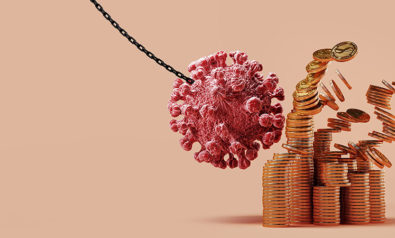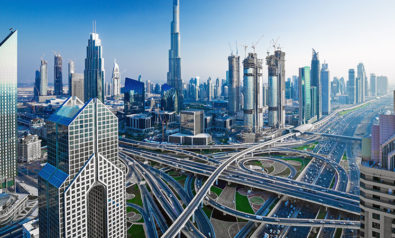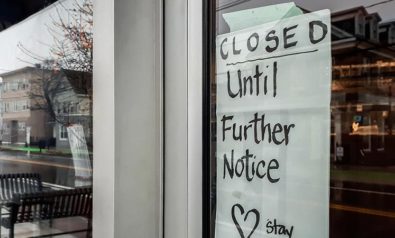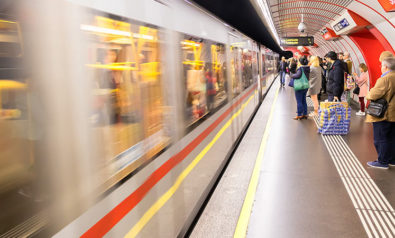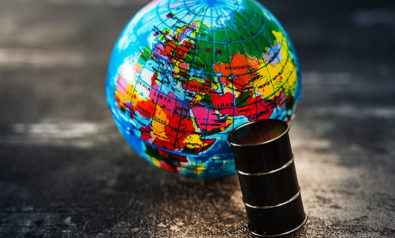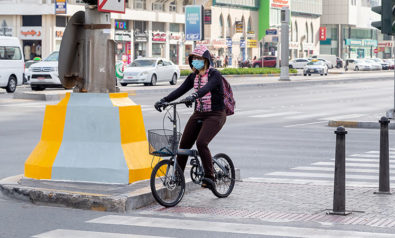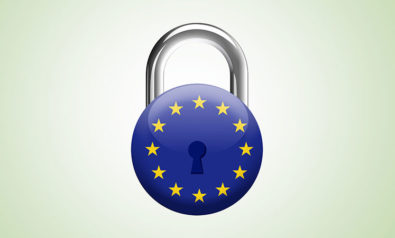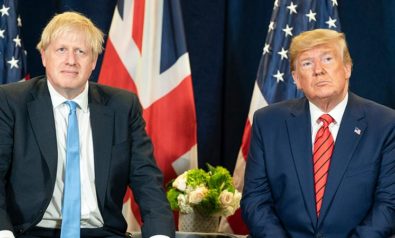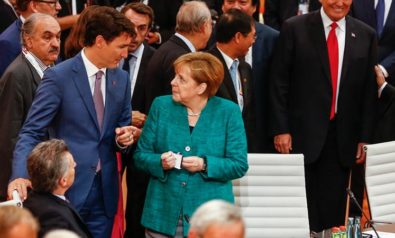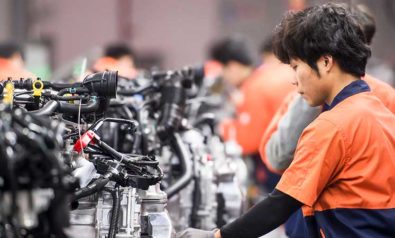On April 28, the United Arab Emirates sent 20 tons of medical aids for the prevention and control of the novel coronavirus in Indonesia. This equipment is expected to help around 20,000 medical personnel in dealing with COVID-19, the disease caused by the coronavirus. While the assistance was just the latest in a series of such initiatives, it nonetheless puts the spotlight on Indonesia’s relations with the UAE, which have intensified since the COVID-19 pandemic began.
COVID-19: What Indonesia Can Learn From South Korea and Taiwan
The recent strengthening of Indonesia–UAE ties was demonstrated when President Joko “Jokowi” Widodo visited Abu Dhabi in mid-January and signed 16 agreements with the UAE’s Crown Prince Mohammed bin Zayed. The deals, which are deemed as the biggest in Indonesian history, consist of five government-to-government agreements in the fields of religion, education, agriculture, health and counterterrorism. They also involve 11 business-to-business deals in various sectors, including oil and gas, petrochemicals, ports, telecommunications and research. The estimated total value of this investment stands at $22.9 billion, or about 314.9 trillion rupiahs.
Changing Relations
Although Indonesia was not one of the UAE’s major consumers for energy previously, this may soon change. This fact was showcased by a $270-million deal on liquefied petroleum gas between Indonesia’s state-owned energy corporation PT Pertamina and the Abu Dhabi National Oil Company (ADNOC). The two companies, along with the UAE’s investment vehicle, Mubadala, also signed a memorandum of understanding (MoU) titled, “Evaluat[ing] a Potential Crude to Petrochemical Complex Project at Balongan” in West Java worth $12.6 billion.
Those agreements were also accompanied by another $3-billion long-term deal on naphtha supply between ADNOC and PT Chandra Asri Petrochemical Tbk. These developments were perhaps caused by the fall in energy demands among the UAE’s usual consumers, such as China and the US, due to the coronavirus lockdowns around the world.
Another important sector that Indonesia and the UAE agreed to boost their cooperation is defense, which has been the major highlight in the two countries’ ties in recent years. In February, when the deadly coronavirus was spreading fast around the world, Indonesian Defense Minister Prabowo Subianto went to Abu Dhabi to meet with the UAE’s Minister of State for Defense Mohammed Ahmed al-Bowardi to strengthen defense diplomacy between the two countries.
Besides defense diplomacy, Subianto also explored potential cooperation on the manufacturing of drones, weaponries, munitions and aerospace. The visit between the two top defense officials also focused on cross-training in counterterrorism operations and their application in hot spots throughout the Middle East and Africa.
It is important to note that the UAE opened up a defense attaché office in Jakarta in December 2019. At that time, Malian Prime Minister Boubou Cisse and Malian Ambassador to the UAE Boukary Sidibe met with Bowardi to discuss Emirati and Indonesian assistance to Mali and the rest of the G5 Sahel nations. This expansion of military-to-military relations across the Sahel by the UAE is illustrative of Abu Dhabi’s scope of transregional operations, which will grow further in the wake of the UAE’s pandemic assistance.
Beyond energy and defense sectors, Jakarta and Abu Dhabi emphasized their aim to partner in promoting a moderate understanding of Islam which, according to the two sides, “is very important for efforts to prevent extremism and terrorism.” This collaboration was marked by the signing of an MoU by Indonesia’s Ministry of Religious Affairs and the UAE’s General Authority for Islamic Affairs and Endowment.
The UAE’s Soft Power
The partnership will involve exchanging experiences developing the capacity of imams and preachers in boosting the UAE’s soft power “tolerance and moderation” concept, as well as sharing experiences and expertise in the field of Quran memorization, translation and publication. Both countries also agreed to exchange delegates in Islamic forums and to cooperate in the construction of mosques. Indonesia has closed all mosques in the country as part of its measures to curb the spread of the coronavirus, and it has broadcast services and educational lessons via the internet. In one sense, this falls within the idea of Islamic boarding schools, except it is online and to a wide audience.
Accordingly, the UAE has decided to build the Mohammed bin Zayed Grand Mosque in Solo, Central Java, that will enable scholars, politicians and academics from both nations to discuss ways to reinforce religious moderation. Indonesia and the UAE also agreed to cooperate in implementing digital education programs for madrasa students and to strengthen their partnership in the halal food sector.
The overall purpose of this Emirati soft power effort is building up the concept of the Abrahamic house, where Christianity, Islam and Judaism exist together under one roof and to use that principle to guide religious discussion between the two countries in terms of “tolerance and moderation.”
Recently, as part of the agreement’s implementation, Indonesia’s National Standardization Agency (BSN) inked a deal with the Emirates Authority for Standardization and Metrology to recognize each other’s halal certificates. Such a partnership is aimed at enabling Indonesian products to reach the UAE’s market, and vice-versa.
Certainly, the UAE’s latest COVID-19 assistance to Indonesia was just the latest development in the growing Jakarta–Abu Dhabi relations in recent years. Since 1976, the two governments have witnessed remarkable, yet silent, growth in their two-way relationship. In 2020, these moves by the UAE are part of expanding the country’s soft power policy.
One important development that is often missed is that Jokowi has decided to appoint Sheikh Mohammed bin Zayed as a member of a steering board for his new capital plan, alongside Softbank CEO Masayoshi Son and former British Prime Minister Tony Blair.
Looking for Other Partners
Against the backdrop of any potential economic downturn in China as well as the US and Europe caused by Beijing’s trade war with Washington and now the coronavirus pandemic, many countries — including the UAE and Indonesia — have tried to find alternative partners. Indonesia’s geographical position as Southeast Asia’s biggest economy and a G20 member makes it an alluring target for investment. With a population of more than 267 million, Indonesia is an enticing consumer market for Emirati exports. This factor is why the UAE’s investment in the Indonesia archipelago is the most dominant among Gulf Arab countries, according to Indonesia’s Investment Coordinating Board (BKPM), which has established a representative office in Abu Dhabi.
At the same time, Indonesia’s strategic location offers the Emirates an opening to boost its ties with other countries that make up the Association of Southeast Asian Nations (ASEAN) bloc. In particular, the UAE’s relationship with neighboring Malaysia is problematic, given previous issues between Abu Dhabi and Kuala Lumpur on issues ranging from Islamic affairs to financial issues involving the 1MBD investigation. By tightening their relationship, both Abu Dhabi and Jakarta can put pressure on Kuala Lumpur’s Islamic “credentials” regarding political issues such as Kashmir and Islamophobia. However, all three nations complement each other in terms of mil-to-mil relations.
For Indonesia, long-standing anti-Chinese sentiment, which has grown amid the COVID-19 pandemic, has presented difficulty for China, which is one of Indonesia’s largest investors. Consequently, bolstering relations with fellow Muslim-majority countries in the Middle East is seen as a safer option by Jakarta. The China-US trade war has driven some firms to choose Southeast Asian nations over China as a base for their operations, but few have opted for Indonesia, causing Jakarta to look to the Gulf.
To be clear, COVID-19 has provided Indonesia and the UAE with a chance to enhance their bilateral relations at a critical time in transregional relationships. The UAE will remain important to Indonesia as a country in the Gulf that can serve as a gateway to new markets as well as a major hub for the largest Muslim-majority country’s expansion throughout the greater Middle East. Assistance from Abu Dhabi could steer its ties with Indonesia in a more strategic direction.
*[Gulf State Analytics is a partner institution of Fair Observer.]
The views expressed in this article are the author’s own and do not necessarily reflect Fair Observer’s editorial policy.
Support Fair Observer
We rely on your support for our independence, diversity and quality.
For more than 10 years, Fair Observer has been free, fair and independent. No billionaire owns us, no advertisers control us. We are a reader-supported nonprofit. Unlike many other publications, we keep our content free for readers regardless of where they live or whether they can afford to pay. We have no paywalls and no ads.
In the post-truth era of fake news, echo chambers and filter bubbles, we publish a plurality of perspectives from around the world. Anyone can publish with us, but everyone goes through a rigorous editorial process. So, you get fact-checked, well-reasoned content instead of noise.
We publish 2,500+ voices from 90+ countries. We also conduct education and training programs
on subjects ranging from digital media and journalism to writing and critical thinking. This
doesn’t come cheap. Servers, editors, trainers and web developers cost
money.
Please consider supporting us on a regular basis as a recurring donor or a
sustaining member.
Will you support FO’s journalism?
We rely on your support for our independence, diversity and quality.




